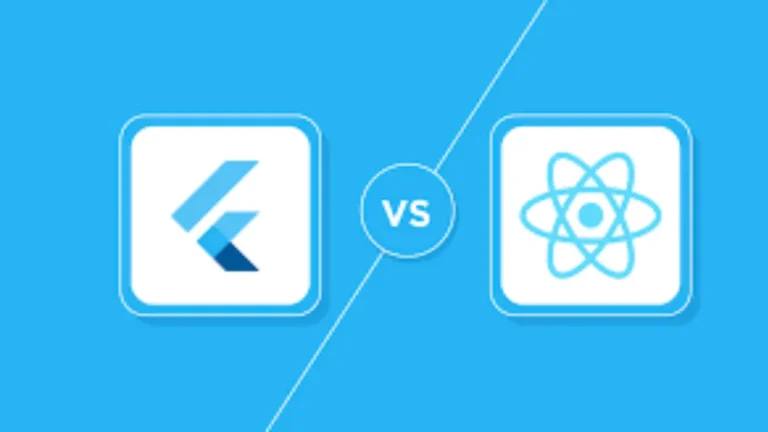
Currently, it is impossible to imagine the world without using the Internet on mobile devices. Therefore, selecting the correct framework to create applications is very important. Among many choices available React Native vs Flutter are the most oftentimes chosen by developers.
Would you like to know about the Flutter vs React Native? This blog will help you to select the right one for your future project. We know it can still be difficult for you, so we advise you to consult a Flutter or React Native app development company. You can partner with us as well and hire ReactJS developers.
Know Flutter
Before directly jumping to the react native vs flutter, it is important to understand both these frameworks. Flutter, developed by Google, offers cross-platform apps with customizable widgets for Android, iOS, web, and desktop.
Flutter work efficiency is incredible, it directly compiles the code to native runtime, making animations smooth and fast. Some of the notable applications that are developed with help of Flutter are Google Ads and Alibaba, which prove the ability of the tool to meet the complex requirements.
Know React Native
React native is an open-source OS independent framework used for developing mobile applications by using JavaScript and React. This one uses native components and does look native because of it which is why it can be used across a variety of platforms.
The major strengths of React Native include hot reloading, where developers can see the changes immediately without requiring a rebuild of the app. Notable examples that have been developed using React Native include Facebook and Instagram. If you are thinking of using React Native for your next application, our ReactJS Development company is here to help.
Comparison Table: Flutter vs React Native 2024
Now, we understand both Flutter vs React Native frameworks. It’s the right time to know the differences between these two. Below table highlights the flutter vs react native difference in points. This table will help you to understand about various features of these two frameworks.
| Feature | Flutter | React Native |
| Programming Language | Dart | JavaScript |
| Flutter vs React Native Performance | High performance with native compilation | Near-native performance with bridge |
| UI Components | It has rich set of customizable widgets | It uses native components |
| Development Speed | Fast development with hot reload | Fast development with hot reloading |
| Difficulty Level | Moderate (Dart knowledge required) | Easier for JavaScript developers |
| Hot Reload | Yes, with a very fast refresh cycle | Yes, but can be slower in some cases |
| Platform Support | iOS, Android, Web, Desktop (Windows, macOS, Linux) | iOS, Android, Web (via React Native Web) |
| Integration | Flutter can integrate with existing apps but best for new apps | React Native can be easily integrated into existing native apps |
| Native Code | It allows access to native code via platform channels | It allows direct access to native code with Java, Swift, etc. |
| Testing | Flutter has built-in testing features | React Native has good testing support with libraries like Jest and Detox |
Use Cases and Direction
Here are five top use cases for Flutter and React Native, along with recommendations for when to use each:
Cross-Platform Mobile Apps
Recommendation: Use Flutter for consistent design across iOS/Android. For fast development with many libraries, use React Native.
High-Performance Applications
Recommendation: Use Flutter when performance is an issue. For example, when building a game or real time application Flutter code is directly compiled into native code.
Prototyping and MVP Development
Recommendation: Both are suitable, but React Native is faster for MVPs due to more third-party libraries.
Complex Animations and Custom UIs
Recommendation: Choose Flutter, mainly because it is excellent for building interfaces that are highly interactive and animated due to the availability of a widget kit that could be fine-tuned.
Integration with Existing Applications
Recommendation: For native app interaction, React Native is ideal due to its easy integration with native components.
Conclusion
Flutter and React Native both have their strengths and weaknesses. They are both perfect for relative kinds of projects. All in all, according to your requirements, your team, and the purpose of the application, it is more important to select the framework between the two.
So, think your requirements over thoroughly and you will be on the right path to making the right choice for your next mobile development project. If you still have any confusion, you can reach out to our React Native app development company.
For Latest Update – Coknews